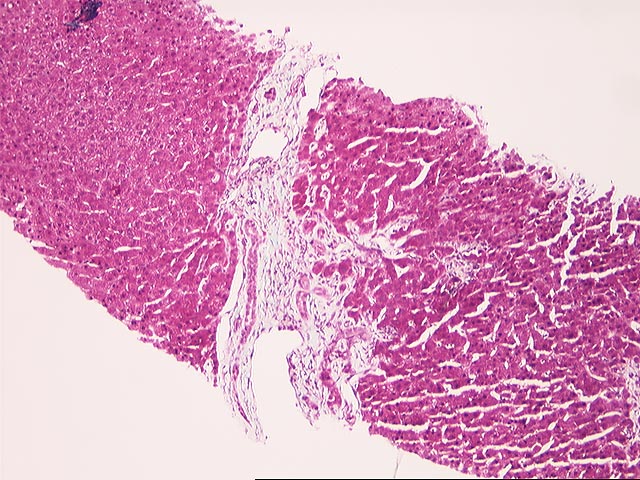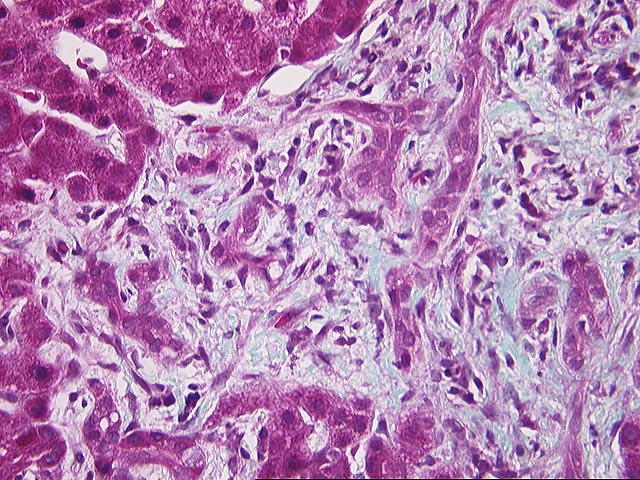Comment:
The portal tract changes strongly suggest low grade
biliary obstruction, such as with primary sclerosing cholangitis or a duct
stricture. If clinically indicated, cholangiography should consequently be
performed to clarify the presence and level of obstruction and establish the
diagnosis.
Previous Biopsies on this Patient:
None
TPIS Related Resources:
Liver
Transplant Topics


The liver biopsy shows hepatic architecture distorted by expanded fibrotic portal tracts with early portal/portal fibrous bridges forming. There is a mixed inflammatory infiltrate that includes patchy mononuclear cells together with numerous eosinophils and neutrophils. This is associated with prominent ductular proliferation. No duct loss is identified and no florid duct lesions are seen. Two medium sized bile ducts are sampled and these show mild accentuation of the periductal fibrous tissue, but are not indicative of a fibroobliterative lesion. The lobules show a mild reactive lobular inflammation.
The changes suggest low grade biliary obstruction such as resulting from primary sclerosing cirrhosis or bile duct stricturing. Cholangiography should establish the diagnosis. Primary biliary cirrhosis is a much less likely possibility given the histologic features.